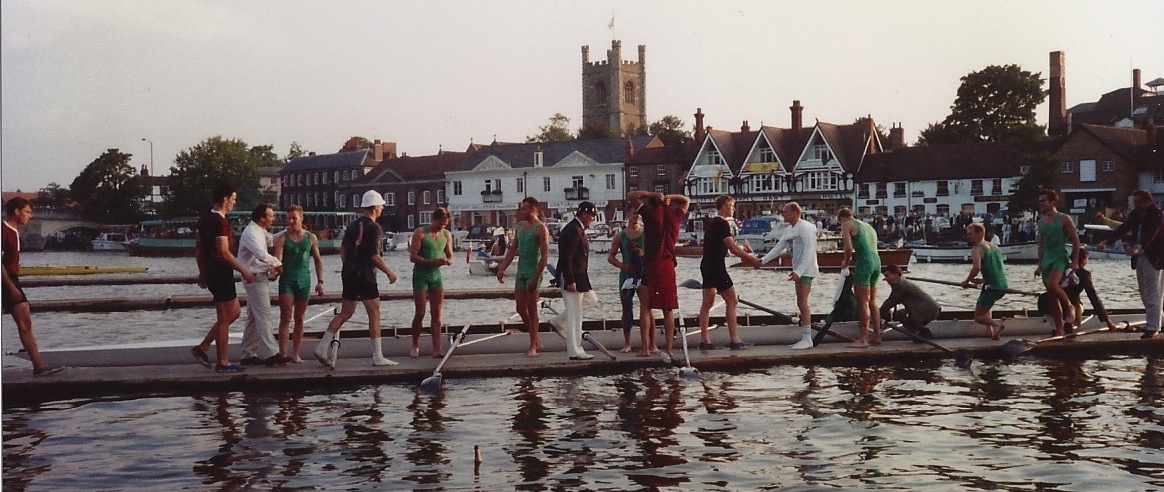Staged annually in April, the Melrose 7s festival is a reminder that the next team sport to be added to the Olympic roster, in Rio in 2016, was invented in the Scottish borders.
Digging around in the Melrose Sevens website reveals that Melrose Football Club, followers of the Rugby rules of football, was desperately searching for fund-raising ideas in the early 1880s. Ned Haig, a Jedburgh-born Melrose member, suggested staging a one-day tournament to bring in the crowds. To make the format workable, teams were to be reduced to seven players and matches limited to 15 minutes.
Held on 28 April 1883, the first tournament proved a great success. Special trains brought hundreds of spectators from Galashiels and Hawick. The 129th Melrose Sevens will be staged on 14 April 2010.
The Scottish town’s status as birthplace of sevens is recognised by the the International Rugby Board. The Melrose Cup is the trophy for the IRB Rugby World Cup Sevens, first staged up the road at Murrayfield in Edinburgh 1993.
Since sevens becomes an Olympic sport in 2016, the next RWC Sevens is expected to be the last – although the IRB website is remarkably coy about its future after the 2013 tournament which will be hosted in Moscow.
In 2009, Stewart Maxwell, a Member of the Scottish Parliament, called on the Scottish Rugby Union to demand that the IRB withdraw rugby sevens from the Olympic Games. Rather than celebrating the even higher profile that Melrose’s invention will now have worldwide, he fears Scotland looses an opportunity to appear – in its own right – on an international stage. His campaign echoes the resistance of some in association football to the inclusion of a GB soccer team in the London 2012 Olympics when England, Scotland, Wales and Northern Ireland are each individual members of FIFA.
However, the IRB is promoting its Sevens World Series to develop sevens and provide many more opportunities for international teams to compete. Sevens has also become a highly successful and fiercely competitive part of the Commonwealth Games – which Glasgow hosts in 2014. The IRB rankings, reveal that Commonwealth nations are prominent among rugby’s leading nations in both the fifteens and sevens versions of the sport.
Given its role as the birthplace of sevens, it’s a shame that Melrose doesn’t even feature on the route of the London 2012 Olympic Torch Relay.
PS: if Rugby takes its name from the town and school which championed a form of football which allowed running with the ball, why isn’t Rugby Sevens known as Melrose?
PPS: was it entirely coincidental that the IOC wll admit two sports with deep Scottish roots – rugby sevens and golf – to the Oympics in 2016.
Links: Wikipedia has entries on rugby sevens in 22 languages, including fittingly, Scots!



